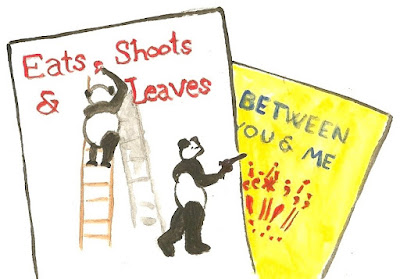A little background: A couple years ago, I participated in an online research study by graduate students at my alma mater. I can’t remember what it was meant to investigate, but I had to submit a photo, and they would “age” it and return it to me. The first photo was rejected; I was smiling too much. Maybe if you’re happy you can’t be “aged”?
The second photo came back and totally freaked me out. I looked OLD, really OLD. I looked grayish – and not just my hair – and there were lines all over my face. Ever since then, I’ve watched the mirror vigilantly, assessing whether I’m turning into the photo.
About a month ago, during the great yarn bombing/knitting vandalism episode, I was interviewed for a news video. Despite being very happy in the video, all I could see was that my face was turning into that grayish, lined face in that old-looking photograph. It haunted me.
When they had me back for a second interview, I actually put on eye makeup. I talked to friends about trying to look better … groomed. But it’s hard because I have finicky skin that doesn’t like most things, and because … well, make-up just doesn’t seem to show up on my list of to-do’s.
Around about this time, I was de-cluttering and came across some very, very old gift bags from Estée Lauder, the kind you get as a prize when you buy cosmetics. As I poked through the bags, I found a never-opened tube of some sort of gentle, luxurious face cleanser.
Tell me, what would you do? Your face has developed lines and you suddenly rediscover a “gentle, luxurious face cleanser”? The only cleanser my face knows is water. Maybe it was time to add some luxury, to make an effort. It felt soft. Luxurious.
Until the red bumps appeared. Bumps that didn’t go away. Bumps that eventually got crusty. On my face.
I pulled out all my ideas of a cure: alcohol, lotions, soaps. A face that knew only water, moisturizers, and sunscreen was now a test site for anything I could drag out of the bathroom cabinets. (Smart people are saying, “What on earth were you thinking?!?”) Hey, I stopped before I tried mouthwash on the bumps.
The dermatologist sighed when he looked at my face. Near as I can understand, I’ve disrupted the flora and fauna of my face, and it is going to be very hard to get it back to normal. Like months and months of hard. I have to put tiny amounts of steroid on it, see if it works, stop, re-start, see if it works.
I’m spending a lot of time looking in the mirror.
I don’t recommend it.
What I’ve learned:
- Third Third lines may be preferable to First Third-looking bumps.
- Sometimes clutter shouldn’t be repurposed, recycled, or transformed into treasure. Sometimes clutter just belongs in the garbage.






















